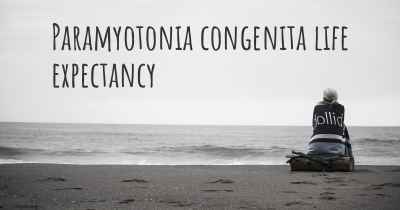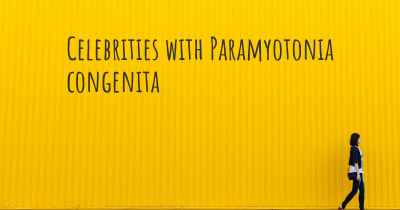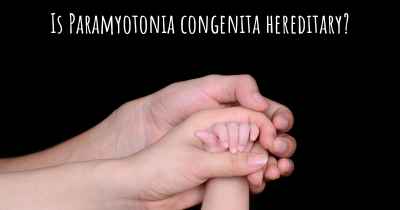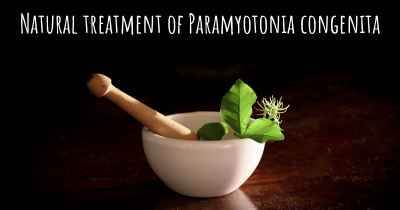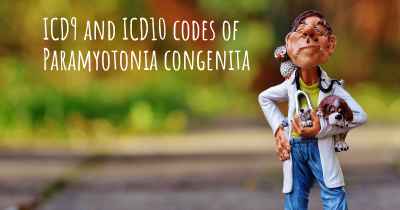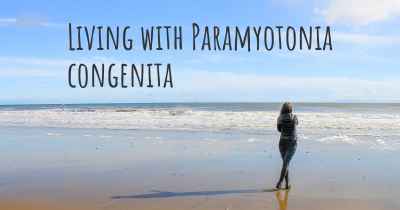Paramyotonia congenita diet. Is there a diet which improves the quality of life of people with Paramyotonia congenita?
Are you aware of a diet that can improve the quality of life of people with Paramyotonia congenita? Is there a diet that is suggested to avoid when having Paramyotonia congenita? See if there is a diet that can improve the quality of life of people with Paramyotonia congenita, recommended and to avoid food when having Paramyotonia congenita
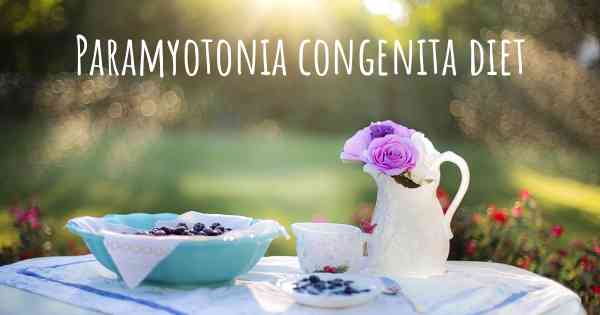
Paramyotonia Congenita Diet: Improving Quality of Life
Paramyotonia congenita (PMC) is a rare genetic disorder that affects the muscles and causes muscle stiffness or weakness. While there is no specific diet that can cure or treat PMC, adopting certain dietary strategies can help improve the quality of life for individuals living with this condition. These dietary recommendations aim to manage symptoms, support overall health, and enhance well-being.
1. Balanced and Nutrient-Rich Diet
A well-balanced diet is essential for individuals with PMC to ensure they receive all the necessary nutrients. Focus on consuming a variety of whole foods, including:
- Lean proteins: Such as poultry, fish, tofu, legumes, and low-fat dairy products.
- Fruits and vegetables: Aim for a colorful assortment to obtain a wide range of vitamins, minerals, and antioxidants.
- Whole grains: Opt for whole wheat, brown rice, quinoa, oats, and other whole grain options to provide sustained energy.
- Healthy fats: Incorporate sources like avocados, nuts, seeds, and olive oil to support heart health.
2. Adequate Hydration
Staying hydrated is crucial for everyone, including individuals with PMC. Aim to drink enough water throughout the day to prevent dehydration, which can exacerbate muscle stiffness and cramping. Carry a water bottle with you and sip water regularly, especially during physical activity or in hot weather.
3. Electrolyte Balance
Electrolytes play a vital role in muscle function and maintaining proper hydration. Ensuring an adequate balance of electrolytes can help manage symptoms of PMC. Include foods rich in electrolytes, such as:
- Potassium: Bananas, oranges, spinach, sweet potatoes, and yogurt.
- Magnesium: Dark leafy greens, nuts, seeds, whole grains, and legumes.
- Calcium: Dairy products, fortified plant-based milk, leafy greens, and tofu.
- Sodium: While sodium intake should be moderated, a small amount can be obtained from natural sources like sea salt or electrolyte-rich sports drinks.
4. Avoidance of Trigger Foods
Some individuals with PMC may experience worsened symptoms after consuming certain trigger foods. While triggers can vary from person to person, common culprits include:
- Caffeine: Found in coffee, tea, energy drinks, and chocolate.
- Alcohol: Can potentially exacerbate muscle stiffness and weakness.
- Highly processed foods: These often contain additives, preservatives, and artificial ingredients that may trigger symptoms.
- Excessive sodium: High sodium intake can lead to fluid retention and worsen muscle stiffness.
It is important to identify personal trigger foods through self-monitoring and consultation with a healthcare professional or registered dietitian.
5. Regular Meal Patterns
Establishing regular meal patterns can help stabilize blood sugar levels and provide a consistent source of energy. Aim to have three balanced meals and incorporate healthy snacks between meals if needed. This approach can help prevent energy dips and maintain muscle function throughout the day.
6. Consideration of Supplements
In some cases, individuals with PMC may benefit from certain supplements to support overall health. However, it is crucial to consult with a healthcare professional or registered dietitian before starting any supplements. They can assess individual needs and determine if any specific supplements, such as vitamin D or omega-3 fatty acids, are necessary.
7. Collaborate with Healthcare Professionals
While dietary strategies can contribute to improving the quality of life for individuals with PMC, it is essential to work closely with healthcare professionals. A multidisciplinary approach involving neurologists, geneticists, dietitians, and other specialists can provide comprehensive care and personalized recommendations based on individual needs.
Disclaimer: The information provided here is for educational purposes only and should not replace professional medical advice. Always consult with a healthcare professional or registered dietitian for personalized guidance.
